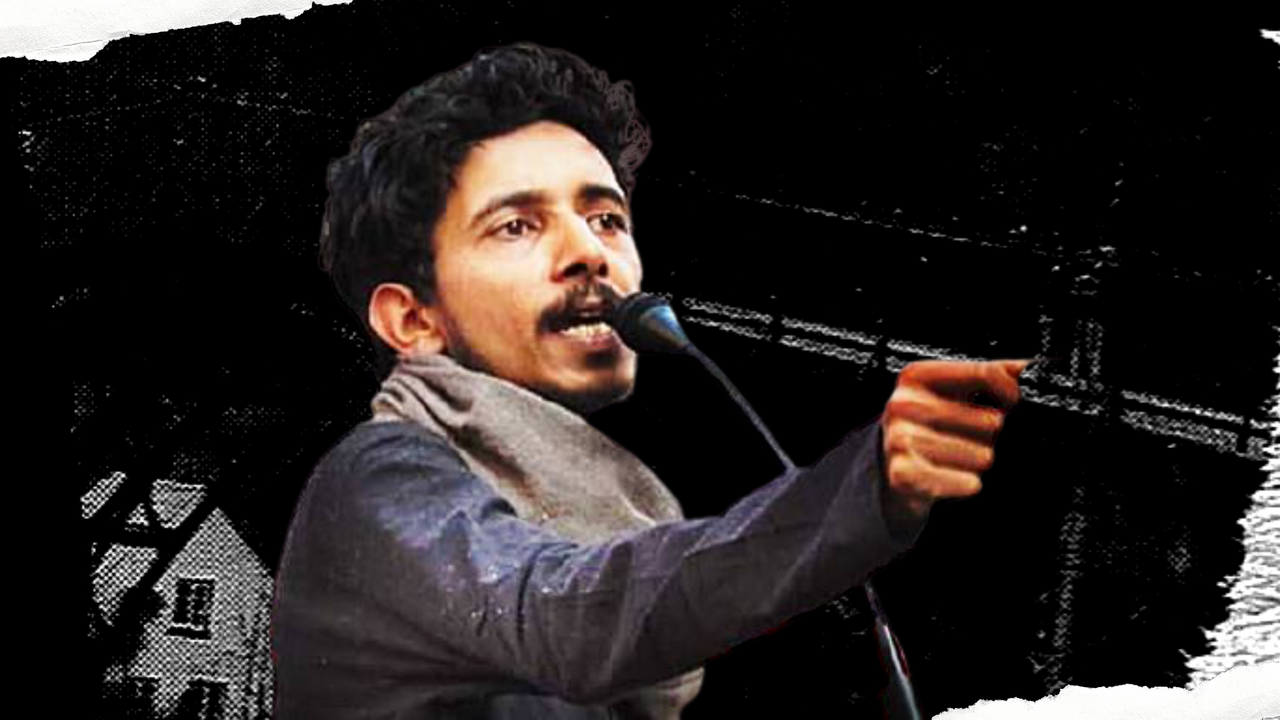In a powerful and thoughtfully penned open letter, Former Aligarh Muslim University (AMU) student leader, Sharjeel Usmani, elucidates what he feels should be the course of action for the oppressed in the nation. In his letter, he urges everyone to give up on “waiting”, to join the fight while they can and not merely be among those who “waited for the persecution to happen only to condemn it with empty slogans, colourful posters and routinely boring hashtags.”
“Nobody cares about the law-abiding attitude of the persecuted in an excellently functional lawless society,” he says. Adding that the response from the community has altogether been that of abiding citizens’. “To a government that does not consider your being, and has proactively worked to ensure that your life be taken for granted by your fellow citizens; we respond by being law-abiding.”
“We cannot pressurise oppressors to not oppress. We can only compel them, force them,” he affirms.
He feels that this is the time to be ‘rogue’. “Muslim activists do not exist to count the dead bodies of their fellow brothers and sisters, to pressurise the government to release every next person incarcerated, and then celebrate their release after several months of illegal imprisonment.” he says, adding that “with everyone person released, there are dozens going in.”
“One can only pressurise someone who cares. This particular government, my dear people, does not care,” he reaffirms.
“In close quarters, we also wait. Wait for all of this to get over. We secretly, and collectively pray that this government is defeated in the upcoming elections,” he says, adding that even if this government is mysteriously defeated, there exists no immediate cure for the alarming mass radicalisation of Hindus. “We also try to fool ourselves by repeating “everything would be alright, we have people on our side, we have allies”. We might as well have the whole world on our side, but that would mean nothing if our entire response is – to wait. With our allies, we patiently wait.”
“The cost of waiting is too much”, he says. “Perhaps more than everything we own. But what do we own?”, he questions. “Nothing that could be summed up as a dignified living. To wait is also a choice we make. Everything we own, we lose depends on the choices we have made. We choose what is convenient, most of the time.”
According to Usmani, to not choose what is convenient, is sacrifice. “To sacrifice is even more generous than waiting. It is to give up something valuable. Now, I urge, is the time to give up waiting.”
“I urge you to give up on waiting,” he stresses. “I urge you to join the fight while you can. I urge you to present before this government and its followers an option to mass-arrest and mass-lynch hundreds or thousands or whatever number of people who are willing to actually fight back. That is the choice we’ve to make. If this is not possible today, let us all work to make it possible whenever it can be possible. This oppression is not going to end anytime soon. Hindutva must be defeated for a just society to exist. We need civil disobedience.”
Usmani explains that ever since the Narendra Modi led Bharatiya Janata Party (BJP) came to power, Muslims in India have faced a systematic, yet a chaotic form of cruel oppression. Their membership in the Indian society has been cancelled, informally, and the cancellation is lined up to be formalised with the duo of the Citizenship Amendment Act (CAA) and National Register of Citizenship (NRC). The manifestation of their informally cancelled membership from the Indian society is multifold. From the ongoing witch-hunting of activists, students and citizens by the Indian law enforcement agencies, to the dominantly hateful Hindutva cultural symbols, to the ongoing and unending lynchings – “it all is to warn us of the declaration that our lives and everything related to our lives are of no value. Forgive me for revealing that what possesses no value is taken for granted,” he says.
Usmani feels that the response to this unjust calculation is convenient and also unsatisfactory. He quotes Rohit Vemula in his last letter, as saying, “the value of a man was reduced to his immediate identity and nearest possibility. To a number. To a thing. Never was a man treated as a mind”. “Our valuation is even worse,” Usmani says. “A number in a list with the header “total deaths”. A thing with no value, and no life.”
Usmani concludes his letter by quoting Allama Iqbal “Jīs khet se dahqan ko mayassar nahīñ rozī, Us khet ko har Khoshā e Gandum ko jalā do.” (Find the field whose harvest is no peasant’s daily bread, Garner in the furnace every ripening ear of wheat!).
Related
Rushda Fathima Khan is the Staff Reporter for The Cognate.












































